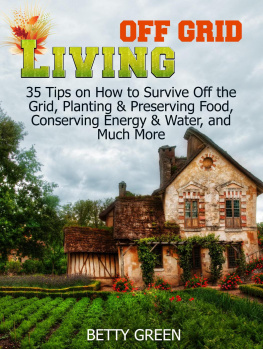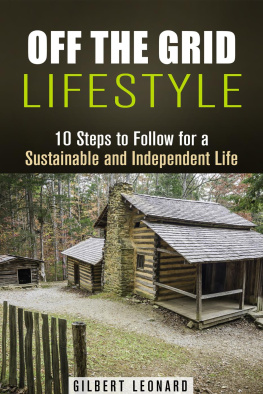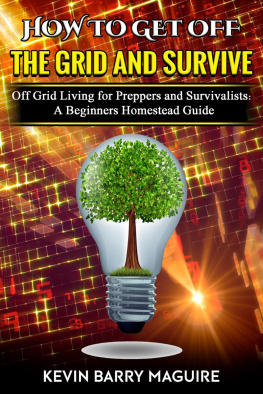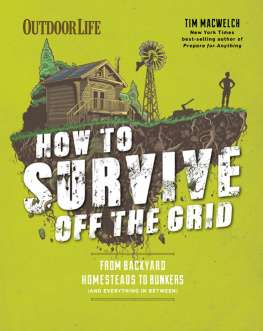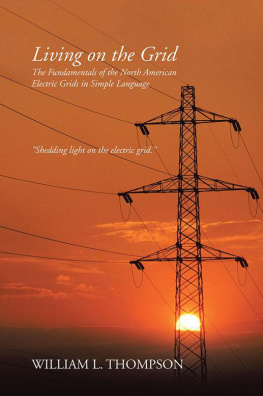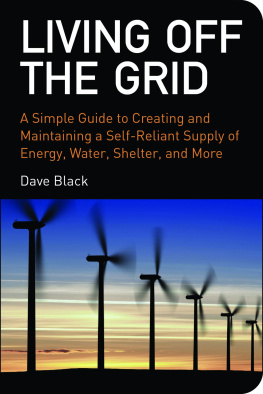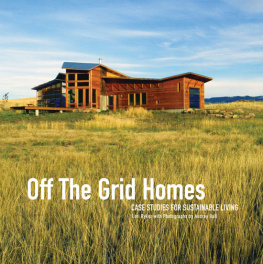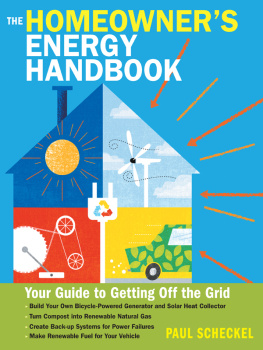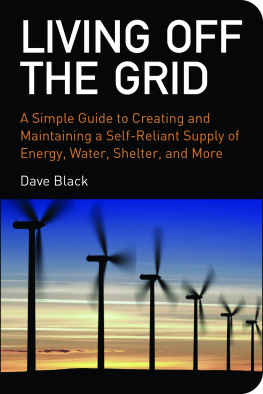Off Grid Living
35 Tips on How to Survive off The Grid, Planting & Preserving Food, Conserving Energy & Water and much more...
Table of Contents
Copyright Notice
Copyright 2015 by Betty Green- All rights reserved.
This document is geared towards providing exact and reliable information in regards to the topic and issue covered. The publication is sold with the idea that the publisher is not required to render accounting, officially permitted, or otherwise, qualified services. If advice is necessary, legal or professional, a practiced individual in the profession should be ordered.
- From a Declaration of Principles which was accepted and approved equally by a Committee of the American Bar Association and a Committee of Publishers and Associations.
In no way is it legal to reproduce, duplicate, or transmit any part of this document in either electronic means or in printed format. Recording of this publication is strictly prohibited and any storage of this document is not allowed unless with written permission from the publisher. All rights reserved.
The information provided herein is stated to be truthful and consistent, in that any liability, in terms of inattention or otherwise, by any usage or abuse of any policies, processes, or directions contained within is the solitary and utter responsibility of the recipient reader. Under no circumstances will any legal responsibility or blame be held against the publisher for any reparation, damages, or monetary loss due to the information herein, either directly or indirectly.
Respective authors own all copyrights not held by the publisher.
The information herein is offered for informational purposes solely, and is universal as so. The presentation of the information is without contract or any type of guarantee assurance.
The trademarks that are used are without any consent, and the publication of the trademark is without permission or backing by the trademark owner. All trademarks and brands within this book are for clarifying purposes only and are the owned by the owners themselves, not affiliated with this document.
Disclaimer
While all attempts have been made to verify the information provided in this book, the author does not assume any responsibility for errors, omissions, or contrary interpretations of the subject matter contained within. The information provided in this book is for educational and entertainment purposes only. The reader is responsible for his or her own actions and the author does not accept any responsibilities for any liabilities or damages, real or perceived, resulting from the use of this information.
I n this age of digital overload, the idea of living off the grid has become extremely appealing. More and more, people are looking at ways to disconnect and fend for themselves. As the technology and techniques behind this movement continue to advance, it has become more viable for people to separate from society and do what they can to be self-sustaining.
In this handy guide, we will explore the core concepts of living off the grid. From how to keep your home powered to ways to safely and effectively provide food and water, we will go through what you can do to stay healthy, happy, and out of societys web. Some of the techniques discussed will be simple, and can be done with minimal planning and effort, some techniques will require some planning and patience, and some may be a bit more advanced and require some considerable focus and prep work.
The wonderful thing about choosing to separate yourself from the grid is that you can pick what level youre looking to achieve. Some people just want to save a little money, while others are bent on keeping themselves completely separated from society. Really, your reasons dont matter; its the level of satisfaction you get from your results that is important, and in this manual, youre going to find 35 tips and tricks for making yourself a little more self-reliant as a homeowner.
So, are you ready to disconnect, unplug, and truly live off the grid? Are you wanting to be more self-reliant but dont know where to start? Keep reading, and we will walk you through the basics of off the grid living.
Chapter 1 Sustainable Food
R egardless of if you are looking to completely disconnect, or if youre looking to just be a little more self-reliant, growing your own food is a great place to start. If you are looking to save money and be self-supportive, there is no easier way to do so than through growing your own food. The cost of quality food has gone through the roof, and with so many people concerned about pesticides and additives, it can be a relief to know where your food has come from and what it has been exposed to.
Granted, not all foods will be able to grow where you live. There is a reason that certain crops come from certain parts of the globe. Still, no matter where you live, you should be able to grow a decent amount of crops that are region friendly, and this can easily help you to be more self-supportive.
Gardening is a fun, rewarding, and viable way to feed yourself without having to rely heavily on the outside world. Its something you can do to easily supplement your existing food supply, or, depending on how extreme you want to get, it can completely support you and help you to disconnect completely from grocers and big box stores.
Before we get started, theres something you should keep in mind. The gardening, watering, and energy tips listed below are wonderful ideas, but different techniques will work with different people and situations. You may want to consult some local experts before choosing what crops to grow or how to power your home. Remember, a little advice in the beginning can help you to avoid some massive problems down the line.
Now, lets get started in picking what type of garden is best for your living situation. After all, different gardens can produce different results.
- To start with, you have to consider your environment. What crops are viable for your climate and soil quality? If you have lots of land, good soil, and the right growing conditions, feeding yourself can be easy. However, for many this is not the way things are. You might need to consider some alternatives to traditional gardening if youre set on growing your own crops.
- For those that are going the traditional route, you should first consider how much of your land is to be allocated for a garden. Even if youre going for a 10x10 garden, you will need to do some prep work. Supplies you will need for a standard garden can include fencing, soil, compost, and of course, seeds.
- If you are concerned about vermin, you may want to consider doing a raised garden. Either way, you will want some type of fencing to make sure your crops arent harvested by the local wildlife.
Next page
